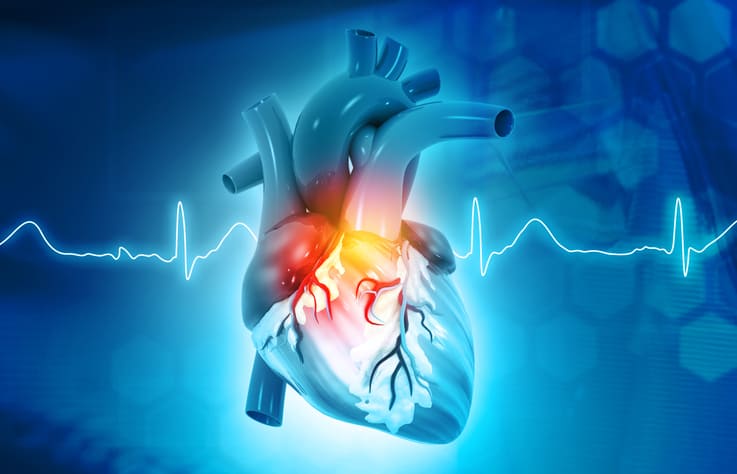Graves’ disease is associated with tachydysrythmia, cardiac ischaemia and cardiomyopathy – all uncommon in young adults without previous cardiac disease. We present three young individuals who developed cardiac complications after periods of uncontrolled Graves’ disease. Subject 1: A 34-year-old female had severe thyrotoxic symptoms for weeks. Investigations showed fT4: 98.4 (11-25 pmol/L), fT3: 46.9 (3.1-6.8 pmol/L), TSH <0.01 (0.27-4.2 mU/L) and thyrotrophin receptor antibody (TRAb): 34.8 (<0.9 U//l). She had appropriate treatment but several weeks later she became breathless despite improving thyroid function. Echocardiography showed a pericardial effusion of 2.9 cm. She responded well to steroids and NSAIDs but developed active severe Graves' orbitopathy after early total thyroidectomy. Subject 2: A 28-year-old male developed thyrotoxic symptoms (fT4: 38 pmol/L, fT3: 13.9 pmol/L, TSH <0.01 (for over 6 months) and TRAb: 9.3 U/L). One month after starting carbimazole, he developed acute heart failure (HF) due to severe dilated cardiomyopathy - EF 10-15%. He partially recovered after treatment - EF 28% and had early radioiodine treatment. Subject 3: A 42-year-old woman who had been thyrotoxic for several months (fT4: 54.3; fT3 >46.1; TSH <0.01; TRAb: 4.5) developed atrial fibrillation (AF) and heart failure. Echocardiography showed cardiomegaly - EF 29%. She maintains sinus rhythm following early total thyroidectomy (EF 50%). Significant cardiac complications may occur in previously fit young adults, who have had uncontrolled Graves' disease for weeks to months. Cardiac function recovers in the majority, but early definitive treatment should be discussed to avoid Graves' disease relapse and further cardiac decompensation.
Cardiac complications of Graves’ disease are uncommon in young adults without previous cardiac disease. These complications may however occur if Graves’ disease had been poorly controlled for several weeks or months prior to presentation. Persistent symptoms after adequate control should alert clinicians to the possibility of cardiac disease. Specific treatment of Graves’ disease and appropriate cardiac intervention results in complete recovery in the majority and carries a good prognosis. Early definitive treatment should be offered to them to prevent cardiac decompensation at times of further relapse.
Significant cardiac disease complicating Graves’ disease in previously healthy young adults.


